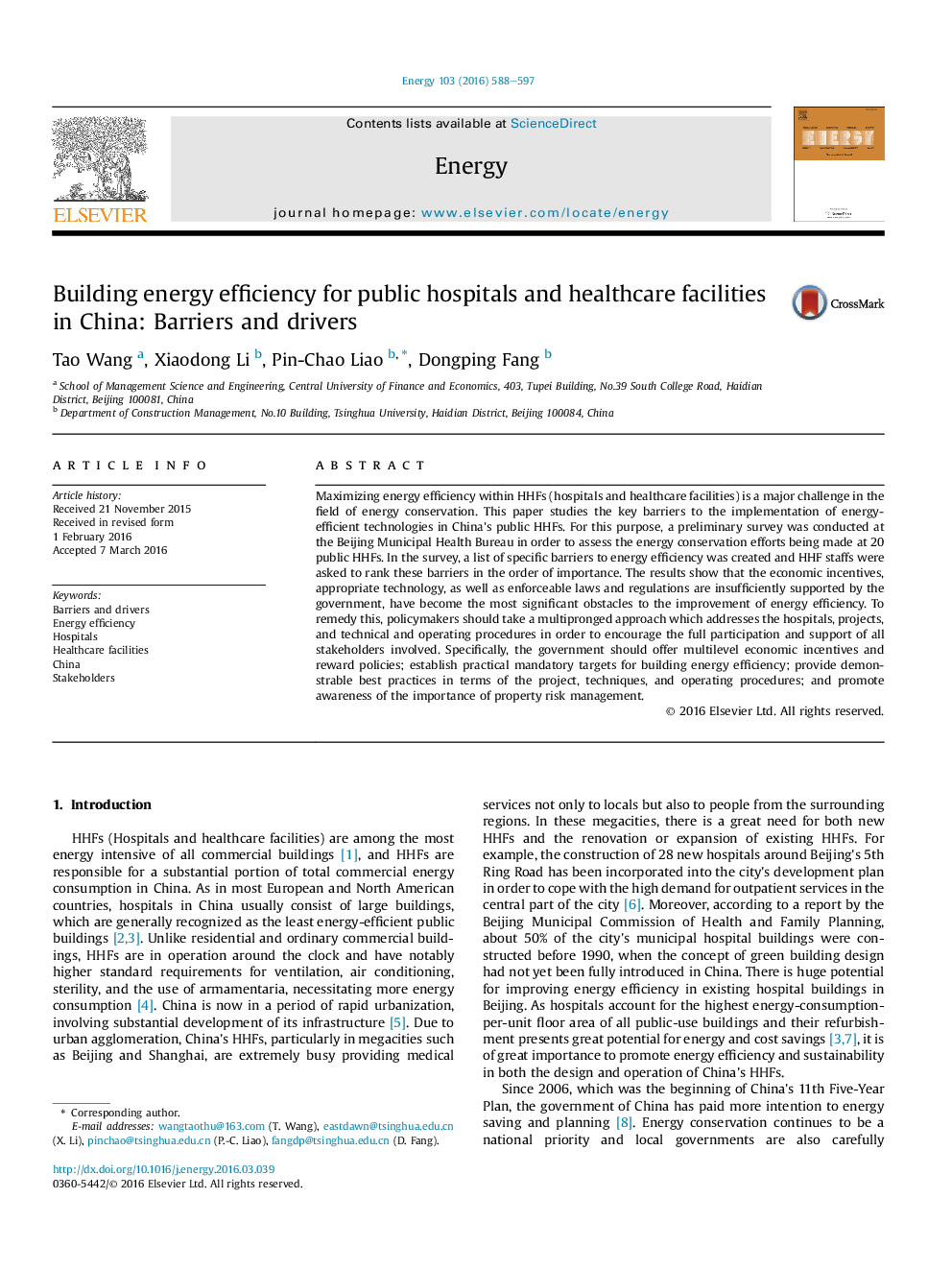| Article ID | Journal | Published Year | Pages | File Type |
|---|---|---|---|---|
| 8073893 | Energy | 2016 | 10 Pages |
Abstract
Maximizing energy efficiency within HHFs (hospitals and healthcare facilities) is a major challenge in the field of energy conservation. This paper studies the key barriers to the implementation of energy-efficient technologies in China's public HHFs. For this purpose, a preliminary survey was conducted at the Beijing Municipal Health Bureau in order to assess the energy conservation efforts being made at 20 public HHFs. In the survey, a list of specific barriers to energy efficiency was created and HHF staffs were asked to rank these barriers in the order of importance. The results show that the economic incentives, appropriate technology, as well as enforceable laws and regulations are insufficiently supported by the government, have become the most significant obstacles to the improvement of energy efficiency. To remedy this, policymakers should take a multipronged approach which addresses the hospitals, projects, and technical and operating procedures in order to encourage the full participation and support of all stakeholders involved. Specifically, the government should offer multilevel economic incentives and reward policies; establish practical mandatory targets for building energy efficiency; provide demonstrable best practices in terms of the project, techniques, and operating procedures; and promote awareness of the importance of property risk management.
Related Topics
Physical Sciences and Engineering
Energy
Energy (General)
Authors
Tao Wang, Xiaodong Li, Pin-Chao Liao, Dongping Fang,
